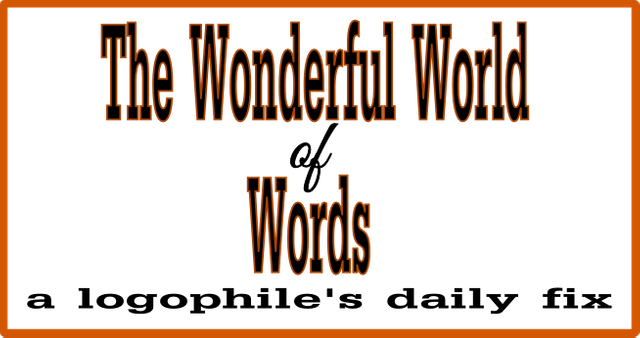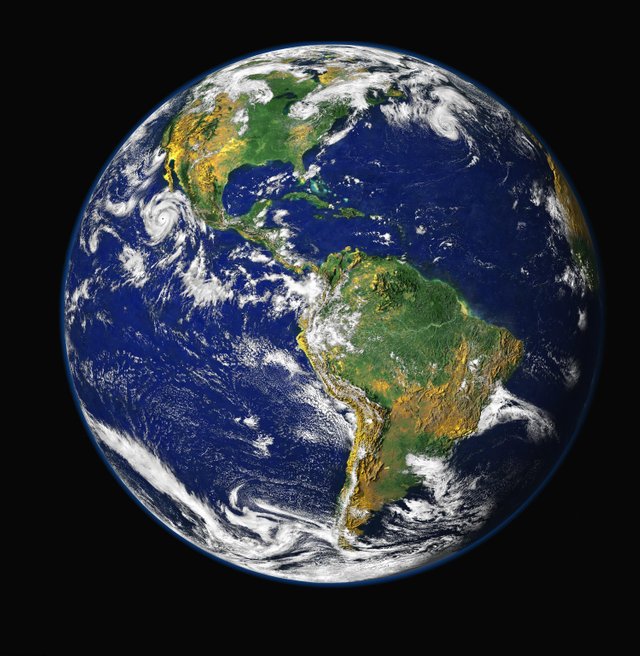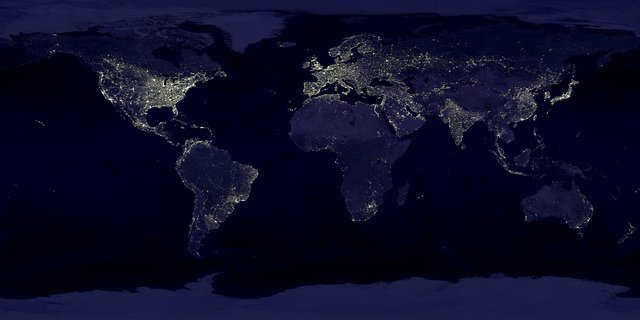The Wonderful World Of Words, 3/26/17

We know for A FACT
that today's word literally means the world to you!
that today's word literally means the world to you!


Today we will examine the word, "EARTH" - how it came to be, who named it, and other names for it. We felt it would be interesting to examine the etymology and history of what could be called the most commonly understood word in our language.
DEFINITION:
Noun
The planet third in line from the Sun
SYNONYMS:
World
Globe
Gaia
Terra
ETYMOLOGY/ORIGIN:
Pre-950 A.D.
Middle English "erthe", Old English "eorthe"
Additional Roots
Old Frisian "erthe"
Old Saxon "ertha"
Old Norse "jörð"
Middle Dutch "eerde"
Dutch "aarde"
Old High German "erda"
German "erde"
Gothic "airþa"
PRONUNCIATION:
[urth]
LISTEN
SCRABBLE SCORE:
8
MORE INFORMATION ABOUT THE WORD "EARTH"
Did you know that no one knows who first coined the word "EARTH"?
--WWWords
The modern English word and name for our planet ‘EARTH’, is said to go back at least 1,000 years. Just as the English language evolved from ‘Anglo-Saxon’ (English-German) with the migration of certain Germanic tribes from the continent to Britain in the fifth century A.D, the word ‘EARTH’ came from the Anglo-Saxon word ‘erda’ and it’s germanic equivalent ‘erde’ which means ground or soil. In Old English, the word became ‘eor(th)e’ or ‘ertha ‘. There is speculation that the origins of the word may be from an Indo-European language base ‘er’ which produced more modern adaptations of the word used in languages today. What is certain though is of all the Planet’s names, EARTH is the only one in our solar system that does not come from Greco-Roman mythology. All of the other planets were named after Greek and Roman gods and goddesses.
--Noreen
http://www.todayifoundout.com/index.php/2010/09/how-earth-got-its-name/
Linguists have reconstructed that these languages descended from a Proto-Germanic language which started around 500 BCE. In Proto-Germanic the word is ertho. There are a small number of carvings that remain from this language.
The linguists went a step further and theoretically reconstructed the grand-parent language as well. This is the Proto-Indo-European language (PIE) theory. There are a several hypothesis inside of PIE theory, but they seem to agree that the PIE-speaking people lived either north or south of modern-day Georgia and spread outwards between the 4th and 1st Millenium BCE. The PIE vocabulary word for EARTHis something unrelated, but the words for "to plow" are all pretty close match to earth. They all share an er or ar prefix that today starts our words arable (farmable land) and arid (dry land). I searched for a more complete PIE dictionary, but failed. I did find that some verbs are noun-ified by adding an s sound, so it's quite possible the PIE word for soil was something like "ers" (rhymes with purse) or "erts". The ancient Armenian word "art" (soil) is a particularly good fit for the modern word.
If modern theories are correct and if I didn't hopelessly bungle my research*, the word EARTH comes from deep in our prehistory. The original word probably started with an ar sound (like the ar in art) and meant soil or ground.
--Elizabeth Greene
https://www.quora.com/Why-was-the-Earth-named-Earth-Who-named-it-How-have-the-planets-been-named

Thank You For Reading
&
Please Upvote If You Enjoy This Blog Because We Certainly Enjoy Creating It For You!
Follow me at @wwwords for more uncommon words to add to your ever-expanding lexicon and don't forget to read each daily installment!
*unless otherwise noted, all images are in the public domain and/or original